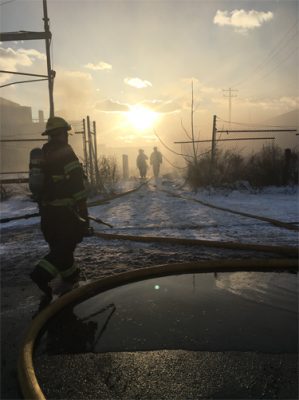Get the help you need right now 855-900-8437 Get Help Now
Get the help you need right now 855-900-8437 Get Help Now
March 20, 2019
Where there’s a trauma or tragedy, fire fighters are often the first on the scene. On any given day, you may encounter house fires, car accidents, terrorist attacks, and other emergency situations. These encounters can lead to mental health conditions over time, including post-traumatic stress disorder (PTSD).
The National Institute of Mental Health (NIMH) defines PTSD as a condition that can develop after experiencing or witnessing a traumatic event. Symptoms of PTSD include flashbacks, avoidance of reminders, negative changes in emotions and behaviors and hyperarousal. When left untreated, this condition can become overwhelming and disrupt your life for months or years.
Thanks to improved awareness, PTSD among military personnel is a well-known issue. Fire fighters and other rescue personnel develop PTSD at a similar rate to service members returning from combat, according to an August 2016 A study from the Journal of Occupational Health Psychology cited in this report reveals that approximately 20 percent of fire fighters and paramedics meet criteria for PTSD at some point during their career. This compares to a 6.8 percent lifetime risk for the general population. The connection between PTSD and traumatizing rescue work is clear.

Fire fighters and paramedics are exposed to potentially traumatic situations by the nature of their work. PTSD and exposure to trauma go hand-in-hand. The disorder only develops after an individual has either seen or directly experienced a traumatic event. Each person’s experience and risk for the disorder is unique. One fire fighter may work through many difficult events over several years before showing PTSD symptoms. Another may develop symptoms after only one disturbing event. And many fire fighters never develop PTSD.
Fire departments across the country are improving the management of behavioral health issues. In fact, much progress has been made in recent years. Yet many fire fighters still don’t feel comfortable talking openly about their struggles. A recent study published in Psychiatric Services revealed that 58 percent of participants reported stigma-related barriers when seeking professional help for suicidal thoughts. The same struggle is likely true for those grappling with PTSD.
You might feel like you’re alone in your struggles, but you’re not. The IAFF Center of Excellence is here to help. Our facility was designed by fire fighters for fire fighters. We’ve helped hundreds of IAFF members who have been in your boots. A better life is possible. Reach out to a representative today for more information.
Sources: Corneil, Wayne. “Exposure to traumatic incidents and prevalence of posttraumatic stress symptomatology in urban firefighters in two countries.” National Center for Biotechnology Information, April 1999. Accessed March 11, 2019.
Hom, Melanie. “Mental Health Service Use Among Firefighters With Suicidal Thoughts and Behaviors.” Psychiatric Services, February 29, 2016. Accessed March 11, 2019.
IAFF. “Fire Fighters Calling 9-1-1” August 2016. Accessed March 11, 2019.
National Institute of Mental Health. “Post-Traumatic Stress Disorder.” Accessed March 11, 2019.
Medical Disclaimer: The IAFF Center of Excellence aims to improve the quality of life for people struggling with a substance use or mental health disorder with fact-based content about the nature of behavioral health conditions, treatment options and their related outcomes. We publish material that is researched, cited, edited and reviewed by licensed medical professionals. The information we provide is not intended to be a substitute for professional medical advice, diagnosis or treatment. It should not be used in place of the advice of your physician or other qualified healthcare provider.